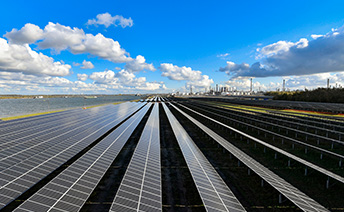Policy and advocacy internal governance
Our global climate and energy transition policy positions serve as a global framework for Shell’s advocacy with governments, international organisations, industry associations, coalitions, and other stakeholders. These global positions are in line with our Powering Progress strategy.
Energy transition policies take effect both globally as well as locally. We adapt our positions to the local policy context, while ensuring alignment with our global positions as well as our business strategy across lines of business and geographies.
Our updated policy principles for responsible lobbying apply to all Shell staff. We advocate on public policy issues in line with these principles.
Our principles for responsible lobbying
- Integrity: We are committed to ethical behaviour, integrity and responsibility in political engagement.
- Legitimacy: We are committed to complying with all applicable laws and regulations of the countries in which we operate. Our political activities support our Powering Progress strategy to become a net-zero emissions energy business by 2050, generate shareholder value, power lives and respect nature.
- Accountability and oversight: The Shell plc Board sets the Shell General Business Principles that guide all Shell activities, including political engagement.
- Consistency: We carry out political engagement activities consistent with our values and the Shell General Business Principles.
- Transparency: Our Corporate Political Engagement Statement provides transparency about our approach.
Our advocacy is a critical part of our strategy. Shell has the following internal governance structures and processes:
- The Board of Shell plc reviews our energy transition strategy periodically and oversees its implementation and delivery.[1]
- The Chief Executive Officer (CEO) has the delegated authority from the Board to manage Shell’s actions in relation to Shell plc’s strategy, which includes climate change.[2]
- The CEO is assisted on climate-related matters by members of the Executive Committee to implement Shell’s energy transition strategy and ensure that such matters are appropriately monitored.[3]
- A senior executive decision-making body has oversight of Shell’s public policy and advocacy priorities and positions, including climate and energy transition. The Executive Committee oversees this body. The decision-making body also provides updates to the Shell plc Board’s Safety, Environment and Sustainability Committee (SESCo).










